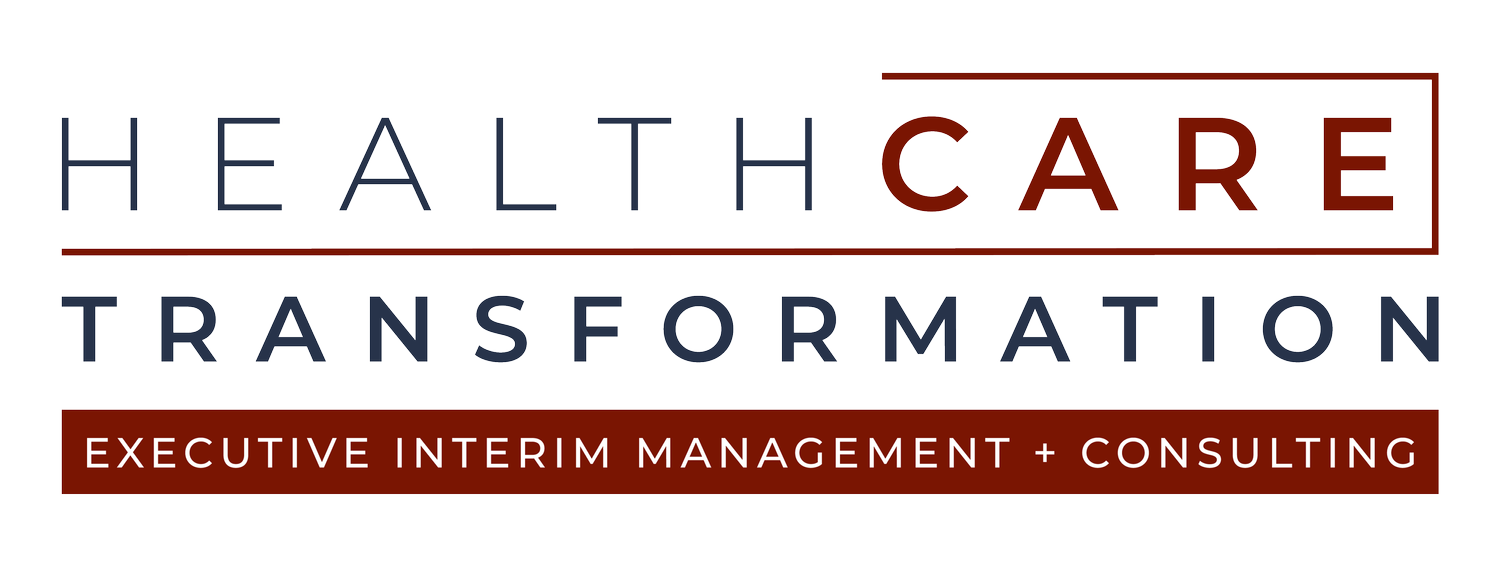Habits of Highly Effective Healthcare Leaders
In healthcare, leadership isn’t optional — it’s a direct line to quality of care, team morale and organizational resilience. Without strong leaders at the helm, even the best strategies or technologies can fall flat.
The current healthcare environment is complex. Staffing shortages, rising patient expectations, tightening regulations and financial pressures are converging, putting immense strain on everyone from frontline workers to senior leadership. Being a competent manager isn’t enough in a high-stakes environment. What makes a good leader in healthcare is a commitment to daily behaviors that build trust, create clarity and move teams forward.
This article examines the importance of leadership in healthcare, the essential qualities of a healthcare leader today and the real-world habits that distinguish the good from the truly great. These aren’t just abstract ideas — they’re actionable, repeatable behaviors that any leader can cultivate with intention and consistency.
Why Leadership in Healthcare is Important
Great leadership has a ripple effect across every aspect of healthcare delivery. When leaders are engaged, clear in their actions and words, and compassionate, the entire organization — from team morale to patient outcomes — feels it.
So why is leadership in healthcare important? Healthcare is a people-centered business. Outcomes hinge on collaboration, communication and decision-making under pressure. Leadership drives:
Care quality and safety: Teams need guidance and decisiveness in complex clinical environments.
Patient satisfaction: Patients notice when care teams communicate well and act as a cohesive unit.
Staff engagement and retention: Effective leaders reduce burnout and help team members feel valued and heard.
Operational excellence: Leaders streamline workflows, foster innovation and solve problems quickly.
Leadership isn’t about having a title or years in the field — it’s about how you show up every single day. And the good news? Great healthcare leaders are made, not born. You can adapt your process and learn how to be a better healthcare leader.
Key Characteristics of Effective Healthcare Leaders
Before exploring the habits that drive excellence, it’s important to understand the foundational traits shared by effective leaders.
Key characteristics of impactful healthcare leaders include:
Adaptability: Leaders must navigate constant change — from shifting reimbursement models to emergent clinical needs — without losing momentum.
Empathy: The best leaders truly understand their teams and patients. They listen without judgment, respond thoughtfully and lead with compassion.
Resilience: When stress spikes or crises emerge, strong leaders remain calm, centered and ready to guide others forward.
Integrity: Trust is non-negotiable in healthcare. Effective leaders model transparency, especially when the stakes are high.
Vision: A strong leader can zoom out and see the big picture, guiding their team toward long-term goals without losing sight of daily challenges.
These are the healthcare leader qualities that help create a strong internal compass. But how do they play out day-to-day? That’s where habits come in.
7 Habits of Highly Effective Healthcare Leaders
These aren’t one-off tactics — they’re daily behaviors that build trust, strengthen teams and improve outcomes. If you’re looking to elevate your leadership in a healthcare setting, these habits are a strong place to start.
1. They Communicate Clearly and Often
In healthcare, information is everything. Whether it’s communicating a change in workflow, updating a team on new safety protocols or delivering tough news with grace, effective leaders make communication a priority.
They don’t just relay information — they close the loop. They check for understanding. They tailor their messaging to fit their audience, whether it’s a floor nurse, a patient’s family or a hospital board. And they create feedback loops so communication flows in both directions.
Example: During a shift change, a leader briefly checks in with outgoing and incoming nurses to share updates and offer support, not just relying on written notes.
2. They Lead by Example
You don’t earn respect in healthcare by simply telling your people what to do. You earn it by showing them how it’s done. Effective leaders don’t just talk about best practices; they live them.
Whether it’s staying calm during a code, helping lift a patient when the unit is short-staffed or taking the time to introduce themselves to new hires, these micro-moments demonstrate what leadership looks like in action.
Example: A hospital COO regularly joins bedside shift reports to understand workflow firsthand and demonstrate respect for the clinical team’s insights, showing that no one is too senior to stay connected to the day-to-day work.
3. They Stay Curious
The best leaders are also lifelong learners. They don’t assume they have all the answers. Instead, they ask thoughtful questions, seek diverse perspectives and stay open to feedback.
They’re just as interested in understanding why a policy isn’t working as they are in fixing it. This curiosity fuels a culture of improvement and adaptability.
Example: A department head might sit in on different unit huddles each week to understand operational challenges and learn how to better support their teams.
4. They Prioritize Team Well-Being
Great leaders understand that healthy teams provide better care. They know that emotional weariness, compassion fatigue and burnout are real, and they make space to address them.
They normalize conversations about stress, advocate for time off and push for safer staffing ratios. They don’t just talk about wellness — they model it, too.
Example: A CNO blocks off time for short, regular one-on-ones with nurses to check in on workload and mental health before problems escalate.
5. They Make Decisions with Data and Empathy
Healthcare is full of tough decisions: staffing models, resource allocation or disciplinary action. Strong leaders use both data and emotional intelligence to guide them. They look at the facts, but also consider the human impact.
This dual lens helps leaders make decisions that are not only efficient but also sustainable and just.
Example: Before making a major shift scheduling change, a leader reviews utilization data and hosts a town hall to hear concerns from frontline staff.
6. They Cultivate Accountability
A culture of accountability starts at the top. Strong leaders set clear expectations and follow through consistently.
They don’t micromanage, but they do check in. They’re not punitive, but they don’t ignore patterns. They’re willing to have difficult conversations and model accountability themselves.
Example: If a deadline is missed, a strong leader addresses it promptly, and if the breakdown started with them, they own it.
7. They Create Space for Innovation
Healthcare doesn’t improve by accident. It improves when leaders make room for experimentation, feedback and iteration.
Effective leaders regularly ask, “What’s one thing we could do better?” They encourage teams to pilot new ideas, and they protect space to reflect and adjust.
Example: A rehab director implements a 15-minute innovation huddle once a week to hear and test new ideas for improving patient engagement.
How High-Level Leadership Habits Improve Healthcare Outcomes
These habits aren't just good to have — they deliver measurable impact across the board. Great healthcare leadership is ultimately about creating the conditions for others to succeed, and that success adds up. Here’s how these daily behaviors translate into better results:
Staff Retention: Clear communication, empathy and consistent support foster loyalty. When people feel heard and valued, they stay.
Burnout Prevention: Leaders who check in early and often — and who encourage boundaries and recovery — help their teams stay emotionally healthy.
Patient Satisfaction: When teams function well, patients feel it. Good leadership improves bedside manner, reduces errors and fosters consistency.
Operational Efficiency: Leaders who model accountability, welcome innovation and communicate priorities help workflows run more smoothly.
Culture of Continuous Improvement: When leaders stay curious and transparent, teams become more engaged in shaping change, not just surviving it.
How to Develop Strong Leadership Habits
If you’re a new leader or someone who’s ready to level up, you don’t need to overhaul everything overnight. Start small and with intention.
1. Build Self-Awareness
Good leadership starts with knowing yourself — your communication style, your default under stress and your core values. Tools like 360 evaluations or personality assessments can help, but so can journaling and honest reflection.
2. Ask for Feedback — Then Act on It
Invite feedback regularly, not just at annual reviews. Ask your team:
What’s one thing I could be doing better as your leader?
What gets in your way at work — and how can I help?
Then follow up with action. Feedback is only useful if it leads to change.
3. Shadow Someone You Respect
Find a leader — inside or outside your organization — whose team loves working for them. Ask to shadow them, debrief after difficult meetings or just observe how they lead. Learn what habits they’ve built and why.
4. Focus on One or Two Habits at a Time
Trying to change everything at once isn’t sustainable. Choose one or two habits each quarter to build intentionally. Maybe you want to get better at leading huddles or giving real-time feedback. Practice, reflect and refine.
5. Measure Progress
Use a journal or habit tracker to measure how often you practice the behaviors you’re working on. Over time, these small behaviors become second nature, and they stack up to big results.
Embrace Healthcare Leadership Qualities That Make a Difference
The most impactful healthcare leaders don’t lead with ego or status. They lead with intention: in how they email, how they walk the floor, how they respond in crisis and how they celebrate small wins. They build cultures that others want to be a part of — not by chance, but by habit.
What makes a good leader in healthcare isn’t a mystery. It’s clarity, compassion and consistency practiced day after day.
The leaders who make the biggest impact aren’t always the loudest voices in the room — they’re the ones showing up with purpose, building trust and modeling what’s possible. Leadership isn’t a destination. It’s a daily practice.


